- Details
- Category: Senator Laura Ellman News
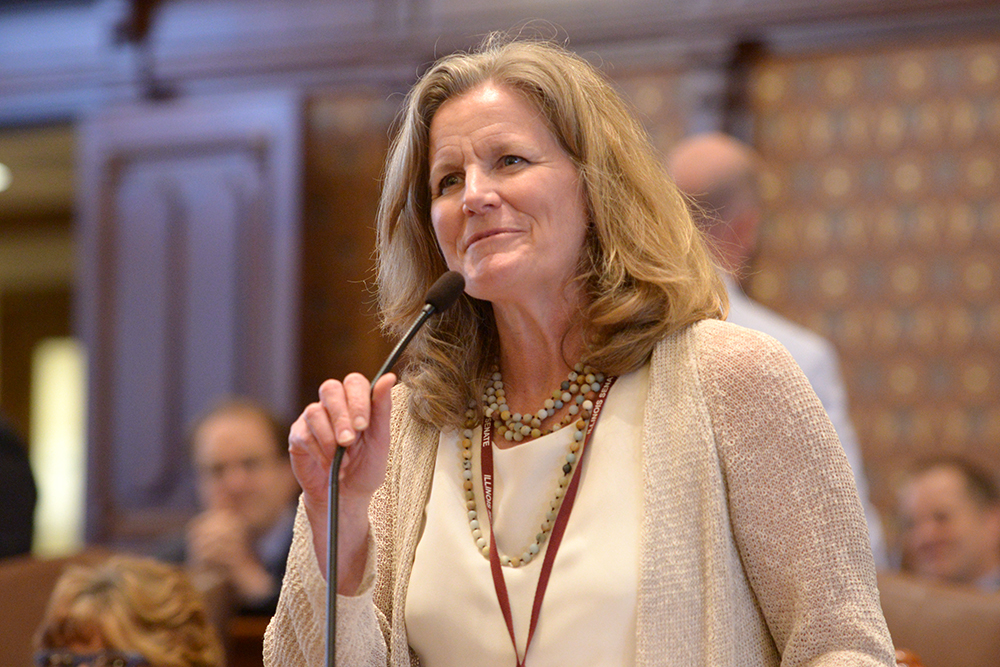 NAPERVILLE — As the state continues to suffer from a financial crisis spurred by the COVID-19 pandemic, State Senator Laura Ellman (D-Naperville) will serve on a bipartisan, bicameral commission to monitor discretionary spending by the governor’s office and local governments related to the new state budget and federal relief funding.
NAPERVILLE — As the state continues to suffer from a financial crisis spurred by the COVID-19 pandemic, State Senator Laura Ellman (D-Naperville) will serve on a bipartisan, bicameral commission to monitor discretionary spending by the governor’s office and local governments related to the new state budget and federal relief funding.
“Illinois is in the midst of a fiscal crisis that we can’t ignore, which creates obstacles in our state budget,” Ellman said. “I’m pleased to work with my colleagues to ensure we’re doing what’s best for all Illinoisans. We’ll continue to work diligently to ensure we’re not stuck in these financially diminishing times forever.”
Ellman was appointed to the Legislative Budget Oversight Commission by Senate President Don Harmon Monday. Local governments will report the status and distribution of federal CARES money and any other federal financial relief related to the COVID-19 pandemic to the commission. The commission will relay the information to the governor and General Assembly.
Beginning Aug. 15, the Governor’s Office of Management and Budget will submit monthly reports to the commission to report budget management actions taken by its office, the governor’s office and all state agencies. Additionally, on a quarterly basis, the governor will give a report to the commission orally that includes budget management actions, year-to-date revenues as compared to anticipated revenues, and year-to-date expenditures as compared to the Fiscal Year 2021 budget.
The 22-member body is made up of Democratic and Republican legislators from both chambers of the General Assembly. Members of the commission will serve without compensation.
- Details
- Category: Senator Linda Holmes News
 AURORA — As Illinois’ number of COVID-19 cases keeps dropping, health and education officials have given the go-ahead to reopen schools this fall with a thorough set of guidelines, according to Assistant Senate Majority Leader Linda Holmes (D-Aurora).
AURORA — As Illinois’ number of COVID-19 cases keeps dropping, health and education officials have given the go-ahead to reopen schools this fall with a thorough set of guidelines, according to Assistant Senate Majority Leader Linda Holmes (D-Aurora).
“We saw so much success by teachers, parents and students adapting to learning at home during a period none of us expected,” Holmes said. “Things will still be different so that learning can be resumed safely, but it will be back to classrooms.”
The Illinois State Board of Education and Illinois Department of Public Health outlined guidelines for K-12 schools and higher education institutions to safely resume in-person learning this fall, while ensuring the health and safety of students and staff is prioritized. The groups worked with educators, superintendents, social workers, nurses and other stakeholders to create the 60-page guidance.
The guidelines for Phase 4 will, among other things:
- Require use of appropriate personal protective equipment, including face coverings;
- Prohibit more than 50 individuals from gathering in one space;
- Require social distancing be observed, as much as possible;
- Require schools conduct symptom screenings and temperature checks or require that individuals self-certify that they are free of symptoms before entering school buildings; and
- Require an increase in school-wide cleaning and disinfection.
All public and nonpublic schools in Illinois serving K-12 students must follow these guidelines.
“Students and teachers can maintain health and safety guidelines back in their familiar classrooms and surroundings. It is a great step forward,” Holmes said.
- Details
- Category: Senator Christopher Belt News
 EAST ST. LOUIS – State Senator Christopher Belt (D-Centreville) promoted guidelines for students to return to school this fall, as numbers of COVID-19 cases continue to gradually decrease.
EAST ST. LOUIS – State Senator Christopher Belt (D-Centreville) promoted guidelines for students to return to school this fall, as numbers of COVID-19 cases continue to gradually decrease.
“Our students and teachers have done an amazing job adapting to e-learning during this health crisis,” Belt said. “Now that they have opportunity to return this fall, parents and teachers have an important role of carefully transitioning our students back into a productive and safe environment.”
The Illinois State Board of Education and Illinois Department of Public Health outlined guidelines for K-12 schools and higher education institutions to safely resume in-person learning this fall, while ensuring the health and safety of students and staff is prioritized. The groups worked with educators, superintendents, social workers, nurses and other stakeholders to create the 60-page guidance.
The guidelines for Phase 4 will, among other things:
- Require use of appropriate personal protective equipment, including face coverings;
- Prohibit more than 50 individuals from gathering in one space;
- Require social distancing be observed, as much as possible;
- Require schools conduct symptom screenings and temperature checks or require that individuals self-certify that they are free of symptoms before entering school buildings; and
- Require an increase in school-wide cleaning and disinfection.
All public and nonpublic schools in Illinois serving K-12 students must follow these guidelines.
- Details
- Category: Senator Andy Manar News
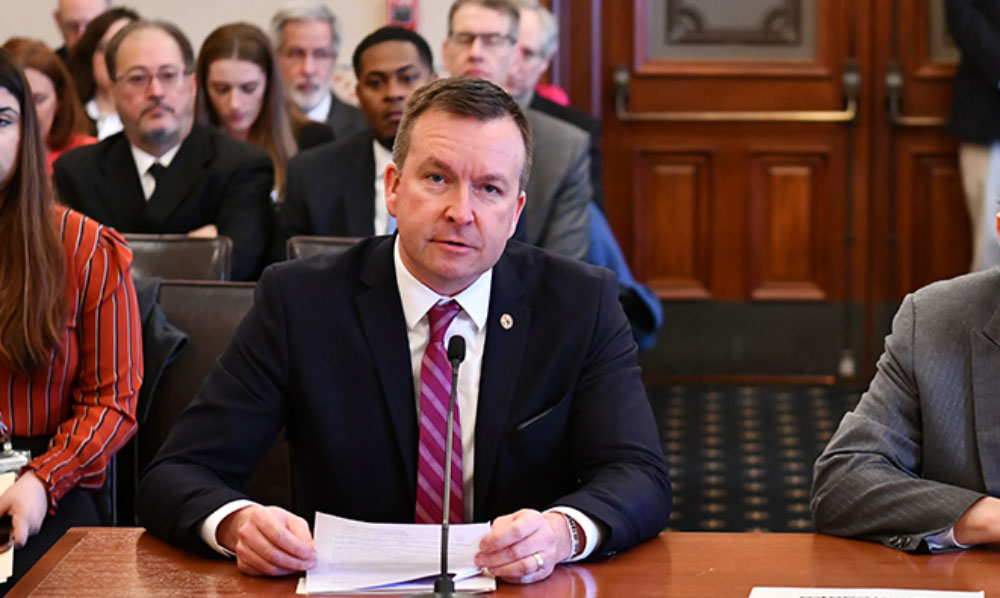 SPRINGFIELD – State Senator Andy Manar (D-Bunker Hill) has been appointed to the bipartisan Illinois Legislative Budget Oversight Commission, which is charged with monitoring discretionary spending by the governor’s office and local governments related to the new state budget and federal relief funding.
SPRINGFIELD – State Senator Andy Manar (D-Bunker Hill) has been appointed to the bipartisan Illinois Legislative Budget Oversight Commission, which is charged with monitoring discretionary spending by the governor’s office and local governments related to the new state budget and federal relief funding.
“The unpredictable nature of the COVID-19 pandemic has and will continue to create unprecedented challenges to our state budget and the way we conduct business, which requires us to find unconventional ways of providing heightened oversight and accountability,” Manar said. “I look forward to working with my colleagues in the House and Senate to ensure that federal and state funds issued in response to COVID-19 are used in the best interest of public health and the economic recovery of families and small businesses.”
The commission will provide a means of open communication regarding budgetary matters between the legislature and the governor’s office, and examine distribution and expenditure of federal financial relief related to the COVID-19 by state and local governments.
Beginning in August, the governor’s office will be required to issue a monthly written report to the commission detailing any discretionary spending or action that is inconsistent with the fiscal year 2021 budget approved by the General Assembly, including any actions that repurposed more than 2% of any budget line.
A representative of the governor’s office will provide a verbal report on these matters to the commission on a quarterly basis in-person, via telephone or videoconference.
At the request of the commission, units of local governments would be required to report on the status of federal funding distributed under the CARES Act.
The 22-member body is made up of Democratic and Republican legislators from both chambers of the General Assembly. Members of the commission will serve without compensation.
The Illinois Legislative Budget Commission was created by Senate Bill 2135.
- Details
- Category: Senator Laura Murphy News
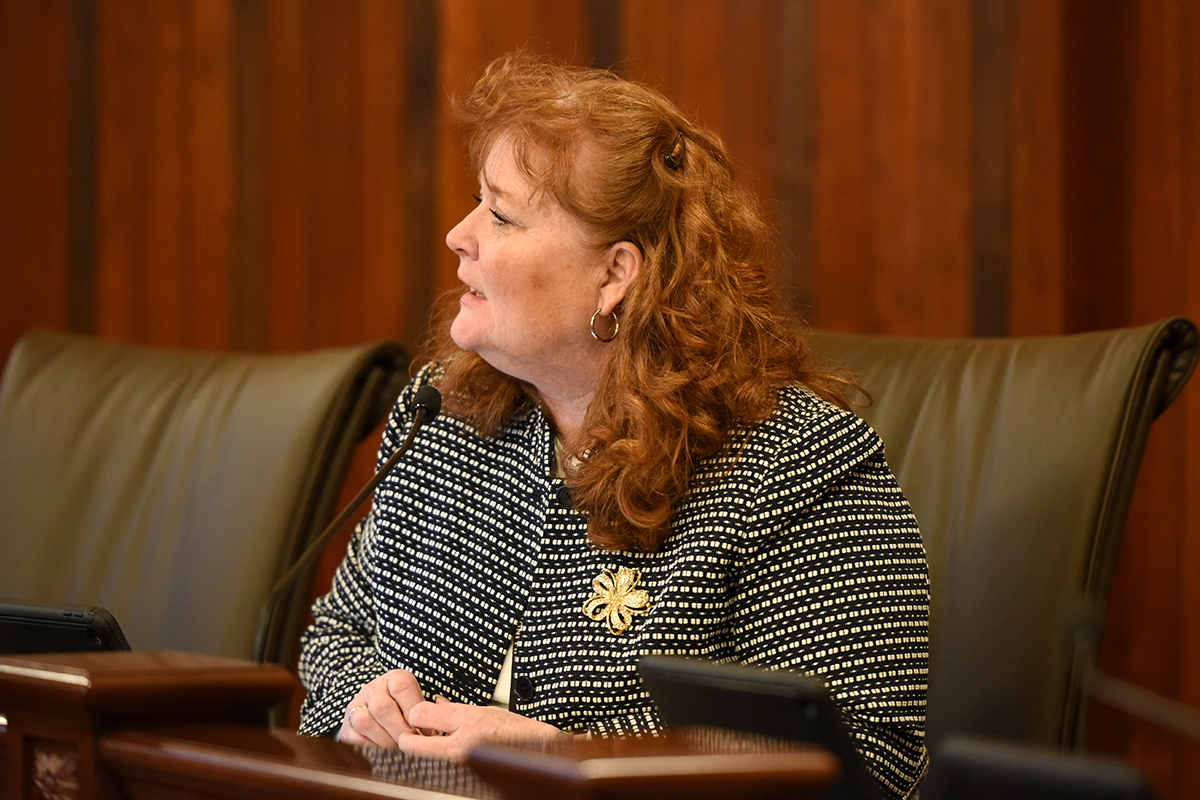 SPRINGFIELD – To provide input on plans to restore the state’s economy after the COVID-19 crisis, State Senator Laura Murphy (D-Des Plaines) has been appointed co-chair of the bipartisan, bicameral Restore Illinois Collaborative Commission, the group charged with navigating the public health and economic concerns of the state’s reopening plan.
SPRINGFIELD – To provide input on plans to restore the state’s economy after the COVID-19 crisis, State Senator Laura Murphy (D-Des Plaines) has been appointed co-chair of the bipartisan, bicameral Restore Illinois Collaborative Commission, the group charged with navigating the public health and economic concerns of the state’s reopening plan.
“Decisions about our state’s recovery can’t be made in a vacuum,” said Murphy. “It’s important the legislature is able to give feedback, present ideas and voice concerns as we move forward with the reopening process.”
The Restore Illinois Collaborative Commission will enable cooperation between the legislative and executive branches in dealing with the public health and economic crises caused by COVID-19. The commission will work closely with the Dept. of Commerce and Economic Opportunity on plans to revive the various sectors of the Illinois economy in the wake of the COVID-19 pandemic.
The commission is made up of 14 members drawn from both political parties and both chambers of the General Assembly. Members of the commission will serve without compensation.
DCEO will provide a written report to the commission and the General Assembly every month regarding the status of current and proposed recovery efforts, with metrics and other information to demonstrate the state’s progress. The first report will be delivered July 1.
“I look forward to working with my colleagues in the House and Senate to ensure our state is on the right track toward a successful recovery,” said Murphy.
The Restore Illinois Collaborative Commission was created by Senate Bill 2135.
- Details
- Category: Senator Christopher Belt News
 SPRINGFIELD –State Senator Christopher Belt (D-Centreville) has been appointed to the Restore Illinois Collaborative Commission, which is charged with overseeing the effort to reopen and rebuild Illinois’ economy as the state recovers from the COVID-19 pandemic.
SPRINGFIELD –State Senator Christopher Belt (D-Centreville) has been appointed to the Restore Illinois Collaborative Commission, which is charged with overseeing the effort to reopen and rebuild Illinois’ economy as the state recovers from the COVID-19 pandemic.
“Reopening our state safely and efficiently is my biggest concern,” Belt said. “I am honored to be part of this commission and work with my colleagues on both sides of the aisle to ensure we follow the best plan to fully recover from the pandemic and renew economic stability.”
The Restore Illinois Collaborative Commission will enable cooperation between the legislative and executive branches in dealing with the public health and economic crises caused by COVID-19. The commission will work closely with the Dept. of Commerce and Economic Opportunity on plans to revive the various sectors of the Illinois economy in the wake of the COVID-19 pandemic.
The commission is made up of 14 members drawn from both political parties and both chambers of the General Assembly. Members of the commission will serve without compensation.
DCEO will provide a written report to the commission and the General Assembly every month regarding the status of current and proposed recovery efforts, with metrics and other information to demonstrate the state’s progress. The first report will be delivered July 1.
The Restore Illinois Collaborative Commission was created by Senate Bill 2135.
- Details
- Category: Senator Dave Koehler News
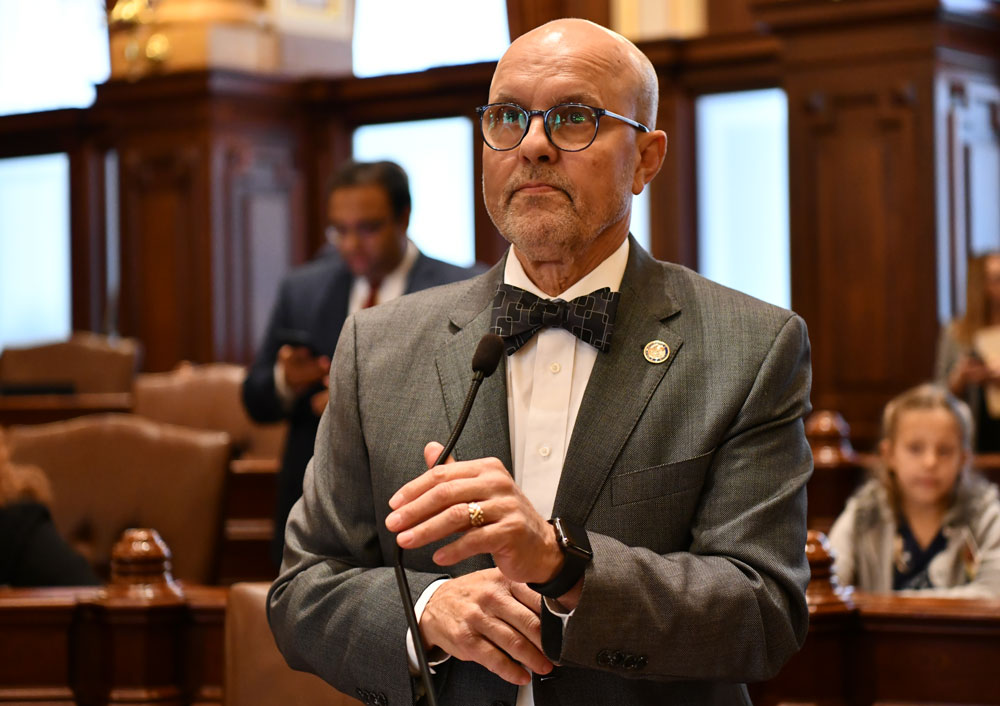 SPRINGFIELD – To provide a voice for Downstate Illinois in the recovery process, State Senator Dave Koehler (D-Peoria) has been appointed to the Restore Illinois Collaborative Commission, a group tasked with addressing public health and economic challenges as the state continues the reopening process.
SPRINGFIELD – To provide a voice for Downstate Illinois in the recovery process, State Senator Dave Koehler (D-Peoria) has been appointed to the Restore Illinois Collaborative Commission, a group tasked with addressing public health and economic challenges as the state continues the reopening process.
“A safe reopening of Illinois will require input from a broad group of individuals,” Koehler said. “I’m honored to have been chosen to help lead as we continue toward the recovery of our state’s economy. I look forward to working in a bipartisan manner with my colleagues in the Senate and House to ensure a smooth recovery process.”
The Restore Illinois Collaborative Commission will enable cooperation between the legislative and executive branches in dealing with the public health and economic crises caused by COVID-19. The commission will work closely with the Dept. of Commerce and Economic Opportunity on plans to revive the various sectors of the Illinois economy in the wake of the COVID-19 pandemic.
The commission is made up of 14 members drawn from both political parties and both chambers of the General Assembly. Members of the commission will serve without compensation.
DCEO will provide a written report to the commission and the General Assembly every month regarding the status of current and proposed recovery efforts, with metrics and other information to monitor the state’s progress. The first report will be delivered July 1.
The Restore Illinois Collaborative Commission was created by Senate Bill 2135.
- Details
- Category: Senator Celina Villanueva News
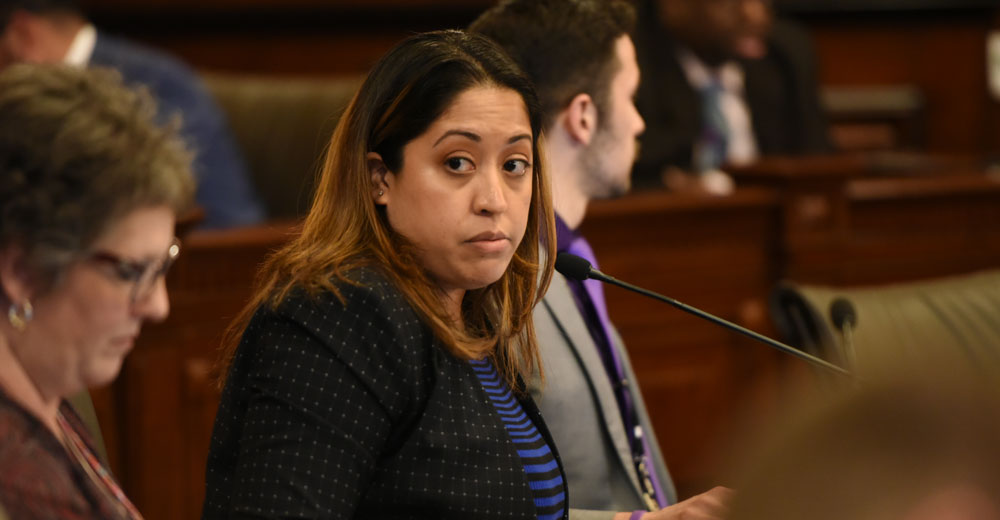 CHICAGO – With college students preparing to return to campus, State Senator Celina Villanueva (D-Chicago) announced that the Illinois Student Assistance Commission (ISAC) is offering free consultation to students applying for financial aid.
CHICAGO – With college students preparing to return to campus, State Senator Celina Villanueva (D-Chicago) announced that the Illinois Student Assistance Commission (ISAC) is offering free consultation to students applying for financial aid.
“The financial aid process can be frustrating, especially for those who are first generation college students,” Villanueva said. “ISAC can help apply for financial aid, answer questions and help maximize the benefits you receive.”
Due to the COVID-19 pandemic, thousands of Illinois families face financial uncertainty. Students and parents can seek an adjustment to their financial aid offers based on their new financial situation. ISAC is available to assist families in this process both online and through their ISAC College Q&A program – a free text service where students can find answers to financial aid questions on their phones. Assistance is available in English and Spanish.
ISAC can also help students and their families with both the Free Application for Federal Student Aid (FAFSA) and the Alternative Application for Illinois Financial Aid. The alternative application is reserved for undocumented and certain transgender students who are ineligible for FAFSA.
More Articles …
Page 595 of 693






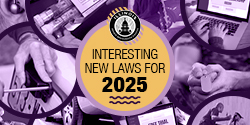





 © 2025 Illinois Senate Democratic Caucus
© 2025 Illinois Senate Democratic Caucus